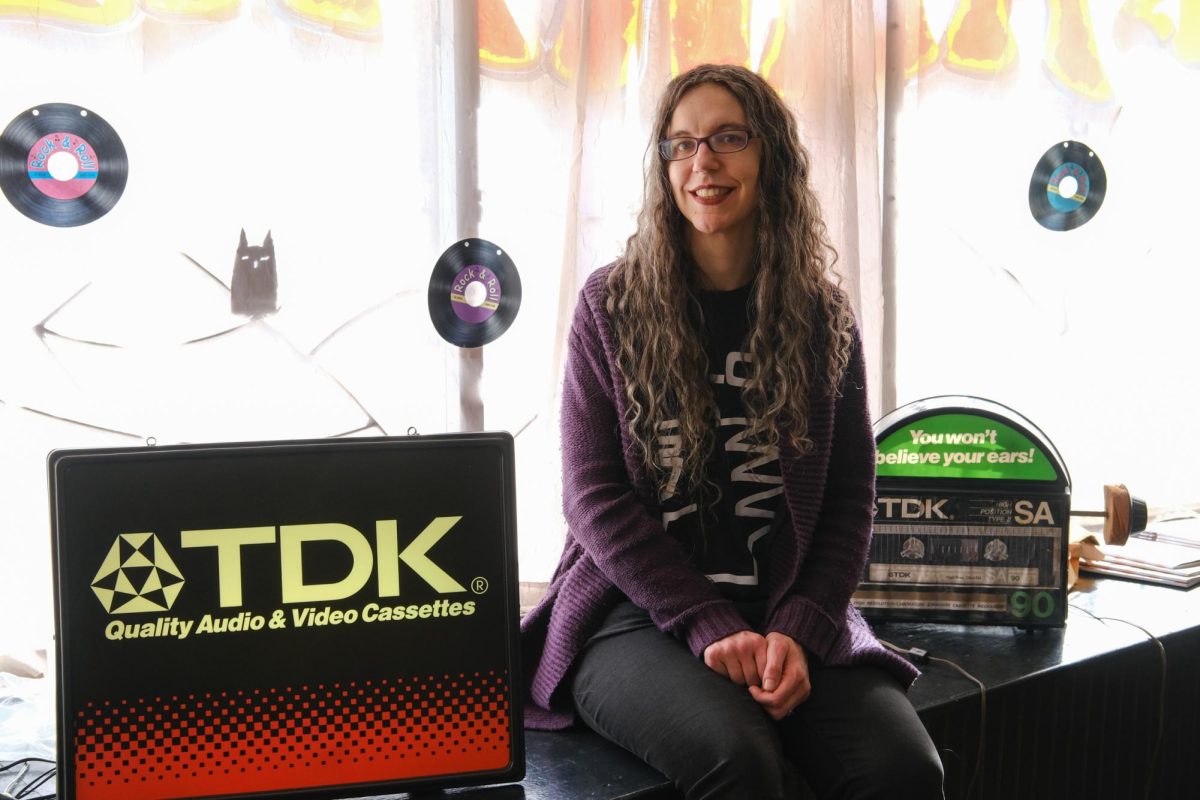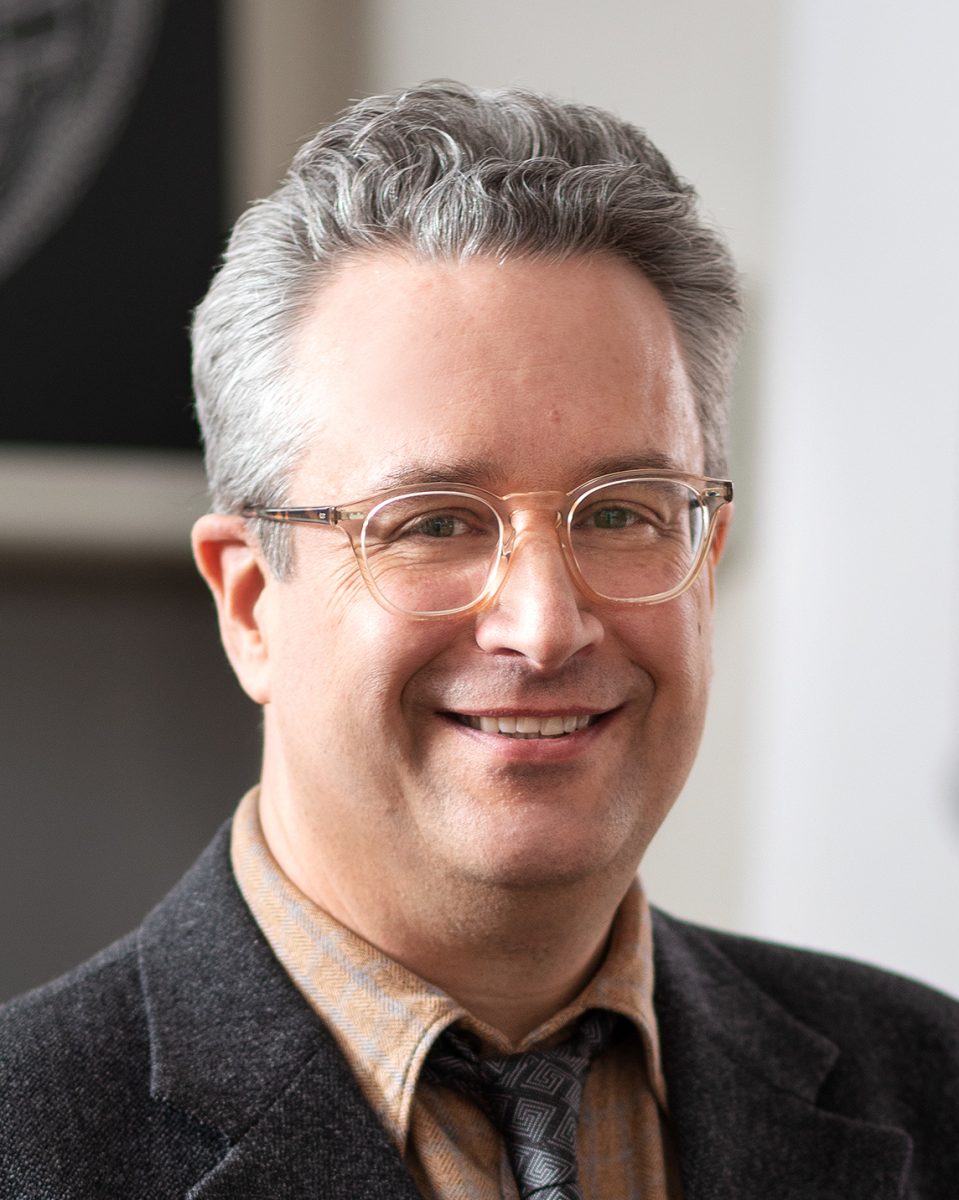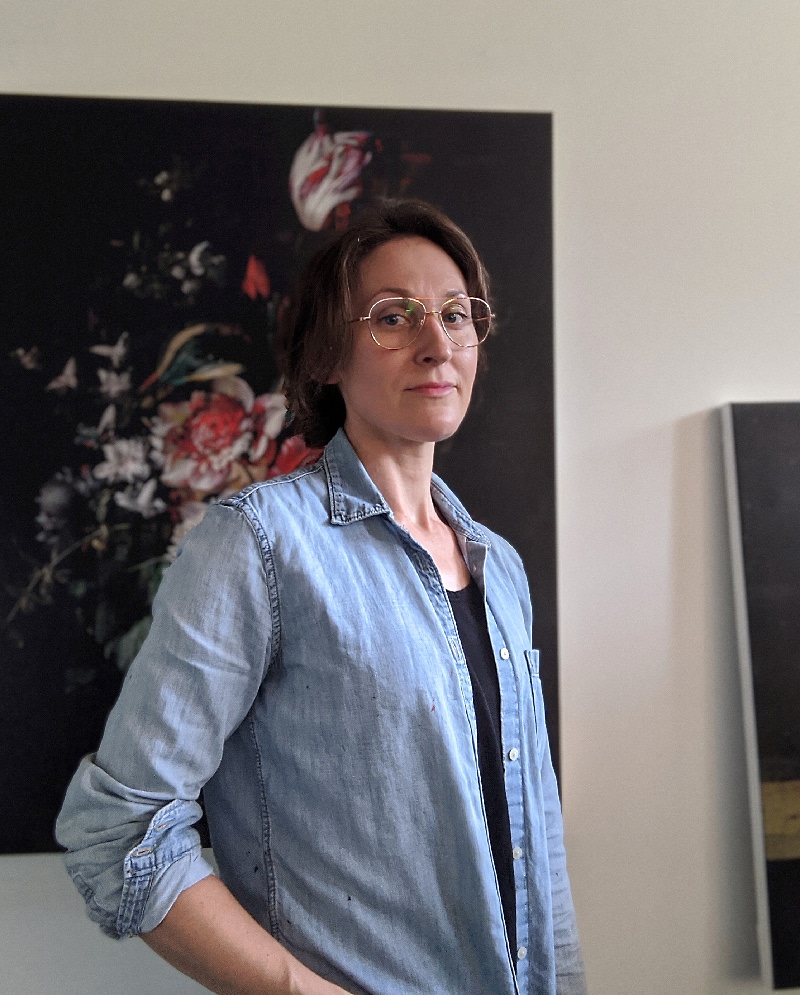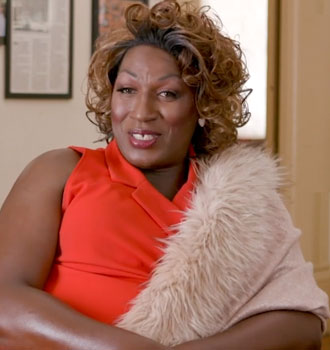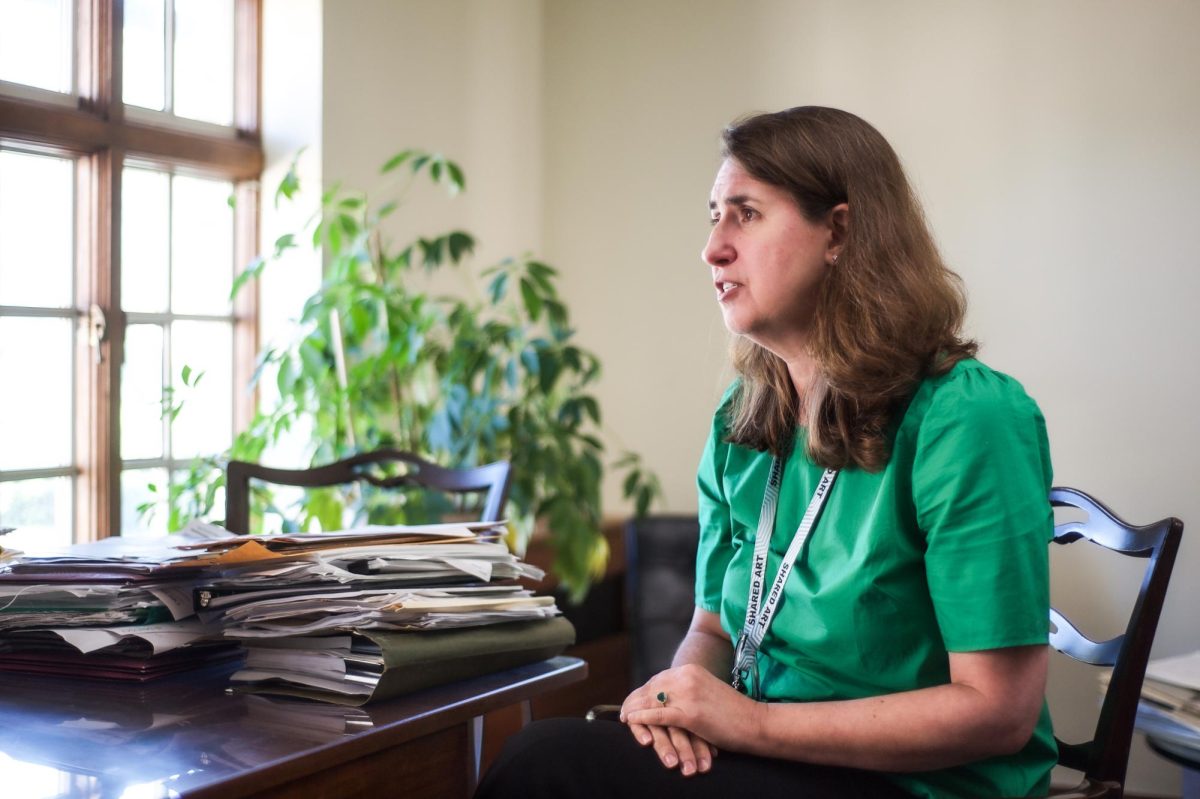Annie Zaleski recently joined the Oberlin Office of Communications as the Oberlin Alumni Magazine editor last spring. Zaleski’s byline has been featured in publications such as Rolling Stone, NPR Music, and Time Magazine. The Cleveland-based and award-winning writer specializes in music journalism and criticism with published books about pop stars like Lady Gaga, Duran Duran, and P!nk.
This interview has been edited for length and clarity.
What is the Oberlin Alumni Magazine? How do you curate content for each issue?
In a nutshell the Alumni Magazine comes out three times a year. It’s basically a magazine that is sent to every single Oberlin alum, as the name implies, and is a mix of news — things going on at Oberlin, profiles, and news on alumni which is curated by us in the Communications department.
I’ve been at this job for a little over six months — since March. I’m still sort of getting used to the rhythm of everything. I work in conjunction with various people to think about the best stories to tell and the best things to profile and highlight. One of the biggest sections is actually driven by alumni: our class notes section. It’s basically everyone submitting their exciting news, like “I put out a book,” or “I had a reunion with a bunch of Obies,” or “I performed in this really cool concert.” And then we also have obituaries, which is a very important part of the magazine, but it’s also sad. It’s telling stories about people who have passed on. So, the magazine is celebrating Oberlin as it is now and celebrating everybody’s achievements after Oberlin, too.
You’ve had a really exciting career, both as a journalist and as an author, with published essays and biographies about pop stars like Duran Duran, Lady Gaga, and P!nk. How do you view your new role as the Oberlin Alumni Magazine editor within the greater context of your career? What similarities and differences exist?
You know, it’s interesting: the job at the Alumni Magazine, in a very surprising sense, brings together many threads of things that I’ve done throughout my career. I’ve published essays and biographies about pop stars and that was a lot of research — that was a lot of writing and editing and working with various publishers on getting a book into the market. There’s a lot of moving parts. It’s very similar to putting out a magazine, in a sense, because you are working together with a lot of different people to produce something tangible that people can hold in their hands. Having to learn how to work with so many different people was really good preparation for my Alumni Magazine job. I’ve also had staff jobs at a weekly newspaper and a magazine where you have to work with an art department; you have to work with writers; you have to work with marketing departments. That’s all very similar to what I do with the Alumni Magazine as well.
My through line throughout my entire career has been writing and reporting. I’m a very rigorous fact checker, and I edit myself almost harder than I do other people. Quality writing is very important to me, and that’s something that is important for me to bring to the Alumni Magazine as well, both on my own and then also helping writers and freelancers. In terms of differences, I’ve had several jobs, but I’ve actually never worked at a college before. So, that’s been really exciting because I went to a liberal arts college, so I’m very used to liberal arts colleges, and I’m a big fan of them. I like going to work every day. It’s exciting driving to campus; it’s all the fun of college, but I don’t have to study. I just have to go to my job.
How has your career prepared you for your work at Oberlin and with Oberlin alumni?
What’s one of the more interesting things about my career is that I’ve written a lot about music, but I’ve done a lot of non-music stuff as well. I’ve written about business, I’ve written about startups, I’ve written about healthcare. And in all of those jobs, I’ve interacted with and written about a wide variety of people. I’ve interviewed everyone from CEOs of companies to young people starting companies. I’m working with alumni, and it’s a very similar thing. I’ll get phone calls from people — I got a phone call yesterday from someone who graduated in the class of ’59, but then I’m talking to people who graduated last year. It’s a total variety.
Throughout my career I’ve just loved talking to many different people. I think that that has prepared me for Oberlin. In general, my background is writing and editing and marketing and research and things like that. I never thought I’d find a career where all of my music background and everything else I’ve done could combine and be an asset, but that’s what I found at Oberlin.
Why do you enjoy writing about music and musicians?
I love that question because I’ve been doing it for so long, and I rarely get a chance to kind of step back and think, “Why do I love doing this?” At heart, musicians are creative people. I talk to a lot of songwriters and they’re all very, very interesting people. They’re all conversationalists. I can count on one hand the number of musicians I’ve interviewed who are just sort of, eh, with one-word answers and things like that. You just don’t really run into people like that. They’re always really fascinating people to talk to.
I like writing about music because it’s a challenge, you know? Writing about music is not easy. It’s kind of an intangible thing, and you have to bring so much into it from lyrical analysis to deep listening to doing research about cultural context. So it’s a very multidisciplinary type of writing. Every album is different. You could love a band and love all their records, and they could release a record that you’re like, “This is not very good. How do I tackle this?” Every new album is sort of a challenge to write about. So it’s never boring. I’ve never been bored when writing about music in my entire career.
What advice do you have for young writers, journalists, and music critics?
Be curious, for starters. Always keep your ears open. Listen to as much music as you can. Just having a wide variety of things that you listen to and absorb is really helpful.
For young writers and journalists, I always tell people, just write every day and never be afraid to ask questions. Sometimes people might be like, “I don’t know if this question is something you’ve already answered before,” or “This is a dumb question.” I always say, there are no dumb questions when you’re talking to people. If you’re unsure about something, ask for clarity. I cannot tell you how grateful people are for making sure that they’re understood and making sure that people are conveying the point that they want to get across in a correct way.
If there are students who are interested in talking about writing or journalism, the Communications Office has opportunities here and there. We are kind of like an open door, so people should feel free to reach out to us.


